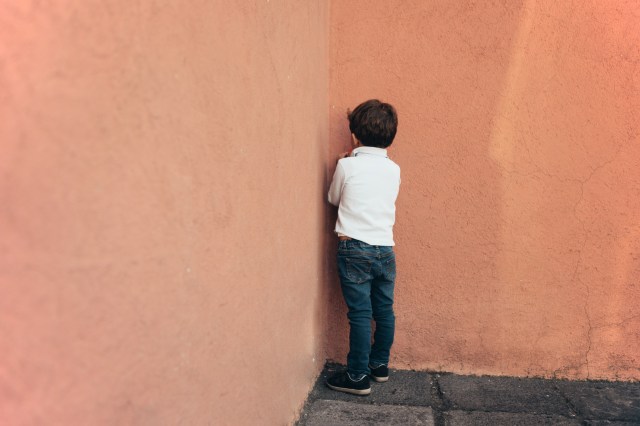
Parents are tyrants. Picture the scene: my four-year-old, ready for the bath, decides a bath is not on her agenda for the evening after all.
Me: “Time to get in the bath.”
Her: “But I don’t want a bath.”
Me: “You’re still having a bath.”
Her: “You can’t make me.”
Me: “Actually, I can.” [picks up protesting child, places child in bath]
Is this an act of oppression? The journalist Noah Berlatsky might say so. “’Parent’ is an oppressive class,” he wrote recently, “like rich people or white people”. For if you believe all coercion is unjust, the fact that parents often make their kids do things against their will surely qualifies as oppressive. So dedicated egalitarians must either not have kids, or else do everything possible to avoid making this inevitable oppression worse than it has to be. As Berlatsky puts it: “There are things you can do to try to minimize the abuse that’s endemic to the parent/child relationship, but it’s always there”.
How, then, does someone who is opposed to oppression in all forms deal with the occasional need to tell your kids what to do? Look no further than the kids’ TV programme which provokes more Mumsnet rage than any other: Bing.
For readers fortunate enough never to have encountered Bing, it depicts humanoid CGI-animated animal children, of what looks like pre-school age. The characters live in a manicured suburb, where they are cared for by tiny toy-like creatures that appear to represent their parents or — more usually — other carer types such as nannies or grandparents. The eponymous bunny, Bing, is cared for by a small entity called “Flop”. Their relationship is never explained, though Bing addresses Flop by his first name, suggesting he is perhaps some kind of childcare professional.

Episodes always follow the same format. Bing and Flop go about their usual day, when a moment of conflict or heightened emotion occurs: a balloon bursts, Bing’s friend won’t let him have a turn on the swing, Bing kills a butterfly, Bing breaks a window in the garden playing football. The children express (muted) emotions, and the tiny carers explain in soft, gentle voices what went wrong, then suggest something to “make it better”.
The hyper-emphasis on persuasion and gentleness evidenced by Flop (and Berlatsky) may seem peculiarly of our time. But this softly-softly take on parenthood is a well-trodden path. Consider, for example, the 1849 poem Speak Gently, by David Bates:
Speak gently to the little child!
Its love be sure to gain;
Teach it in accents soft and mild:
It may not long remain.
Bates’s poem was popular enough at its time to reappear in (ultimately far more famous) parodied form in Lewis Carroll’s 1865 Alice’s Adventures in Wonderland, where the grotesque Duchess sings to her howling infant:
Speak roughly to your little boy.
and beat him when he sneezes:
he only does it to annoy,
because he knows it teases.
But it wasn’t until the twentieth century that the balance of parenting advice began to shift decisively against Carroll’s “Duchess”, toward the feather-soft Flop school of child management. The 1922 manual Common Sense in the Nursery, for example, is a typical example of post-war “behaviourism”:
“By training the baby to lie alone […] by feeding him four-hourly by day and not at all by night, a woman is able to lead a human life instead of having it completely disorganised.”
This is hardly beating a baby when he sneezes; but it assumes a child should be as far as possible trained to fit in with parents’ wishes. By the mid-20th century, though, a growing body of advice reversed the polarity. In Baby and Child (1977) Penelope Leach asserted that a baby cannot be “spoiled”, because “they are not grown up or clever enough to be spoiled”. Instead, a mother should fit her own activities to the baby’s point of view. Despite being “very hard work”, Leach thought, this was in fact the best path to happiness not just for the child but for mummy as well: “taking the baby’s point of view does not mean neglecting yours, the parents’ viewpoint. Your interests and his are identical … If you make happiness for him he will make happiness for you.”
This progressive inversion of the balance of power in a parent/child relationship is perfectly captured by the relative size of the adult and child characters in Bing. My daughter was mistaken to think I couldn’t make her have a bath, because I’m physically much bigger than her, and happy to use that advantage to enforce personal hygiene. But Flop is around a third of Bing’s size, so if Bing sat down on the bathmat and refused to get in the bath, Flop would not be able to make him comply.
Luckily, unlike in the real world, in Bing world this sort of adult/child conflict of wills never happens. Instead, Bing is the ideal child, as depicted by 20th-century progressive parenting guru Benjamin Spock, who opined in Baby and Child Care (1955) that “If a child is handled in a friendly way, he wants to do the right thing, the grown-up thing, most of the time”. From this perspective, there’s no need for discipline because, all you need is love.
A decade later, Californian therapist Carl Rogers was making a similar argument in the realm of psychotherapy. Rogers argued against Christianity’s pessimistic take on humans’ baked-in propensity for evil, the doctrine of original sin, as well as the psychoanalytic reworking of original sin in the form of “id”, “libido” and “death instinct”. Contra these downbeat visions of human nature, Rogers argued that “the innermost core of man’s nature, the deepest layers of his personality, the base of his ‘animal nature’ is positive in nature — is basically socialised, forward-moving, rational and realistic”.
In this view, bad deeds are not a consequence of human nature, but only ever a result of trauma, ignorance or error. There’s no need for containment or discipline, only forgiveness and education — or, as Rogers would put it, “unconditional positive regard”.
When Bing breaks the window of the garden shed after Flop already suggested (in the usual gentle voice) that he refrain from kicking the ball hard, Bing is guilty and apologetic. But of course this is a mistake, not disobedience, so when he whines to Flop “I forgetted about the big kicks”, Flop just soothes: “It’s easy to forget”. There are no further consequences. Indeed, the only reason to impose rules at all is personal safety, as evidenced by the uncharacteristic firmness with which Flop orders the children away from the broken glass.
If we take Bing as an idealised template for what both parents and children are meant to look like, it’s a rosy vision of humans as fundamentally innocent and good, and of optimum development as ordered mainly around the child’s needs.
Bing is never aggressive, capricious or lacking in empathy. He never throws a tantrum. He’s a very 21st-century mixture of ignorant, self-centred and susceptible to guilt trips: the perfect child-centred child. Responsible adults organise their lives around the children’s needs and desires, never themselves express any emotion (especially not anger) and don’t leave children to resolve conflict between them, and only impose clear rules when physical safety is at risk. There’s no punishment, no one ever loses their rag, there’s no need to make the kids do anything, ever.
If there’s a reason Bing prompts so much swearing on Mumsnet, it’s because this is an insanely rosy view of what wrangling small children is actually like. Already in 1969, Benjamin Spock was warning that touchy-feeliness can go too far, observing in an updated edition of Baby that in fact love is not all you need. Parents have “welcomed new theories’, Spock observed, but “They have often read meanings into them that went beyond what the scientists intended—for instance, that all that children need is love; that they shouldn’t be made to conform … that whenever anything goes wrong it’s the parents’ fault; that when children misbehave the parents shouldn’t become angry or punish them but try to show more love”.
Berlatsky is half-right, but not in the way he thinks: oppression is indeed baked into the parent/child relationship, if by “oppression” you mean hierarchy and occasionally coercion. But he, and proponents of radically egalitarian parenting in general, are wrong to imagine this dynamic should be minimised. On the contrary, the fact that parents have authority over their children should be cheerfully embraced, for the child’s psychological health.
Whether you call it original sin or the death instinct, all humans come with a capacity for darkness as well as light. My experience as a parent is that this isn’t the product of culture: it’s baked in. We don’t have to beat our children for sneezing to know it’s not enough to claim our dark side can be loved away. Sometimes it needs to be contained, by clear boundaries lovingly maintained.
If we fail to do this, the result isn’t kinder or more moral individuals; it’s more stunted ones. If parents convey the message that the only permissible emotions are sanitised ‘positive’ ones, never hatred, greed, envy, vengefulness or rage, it becomes the child’s responsibility to keep a lid on his or her own strong feelings. I know poor Bing is not a real person, but I’m still horrified by how limited the range of his emotional responses is. Even when Pando smashes Bing’s best sandcastle, all Bing manages is a plaintive, vaguely passive-aggressive ‘awww, that was our biggest sandcastle ever’.
At the end of each episode, Bing breaks the fourth wall and addresses the audience directly, offering a summary of what happened and how it made him feel. Usually what Bing felt was ‘sad’, and even if it’s ‘angry’ this is relayed in a sad voice. I can only conclude that this poor anthropomorphic bunny-child has already learned to prune his own emotions into an acceptably progressive range.
For this is what it looks like when parents refuse to step up to the position of authority our children need us to take. The result will either be out-of-control kids desperate for someone to provide some containment, or else the stunted feelings of someone who has learned it’s not safe to throw a wobbler. So Berlatsky is right that parents are tyrants, but his mistake is to imagine that this is a bad thing. The loving imposition of authority by parents, in a child’s interests, is not oppression. It’s a vital condition for the inverse of oppression: safety, freedom, and the space to be a child.










Join the discussion
Join like minded readers that support our journalism by becoming a paid subscriber
To join the discussion in the comments, become a paid subscriber.
Join like minded readers that support our journalism, read unlimited articles and enjoy other subscriber-only benefits.
Subscribe